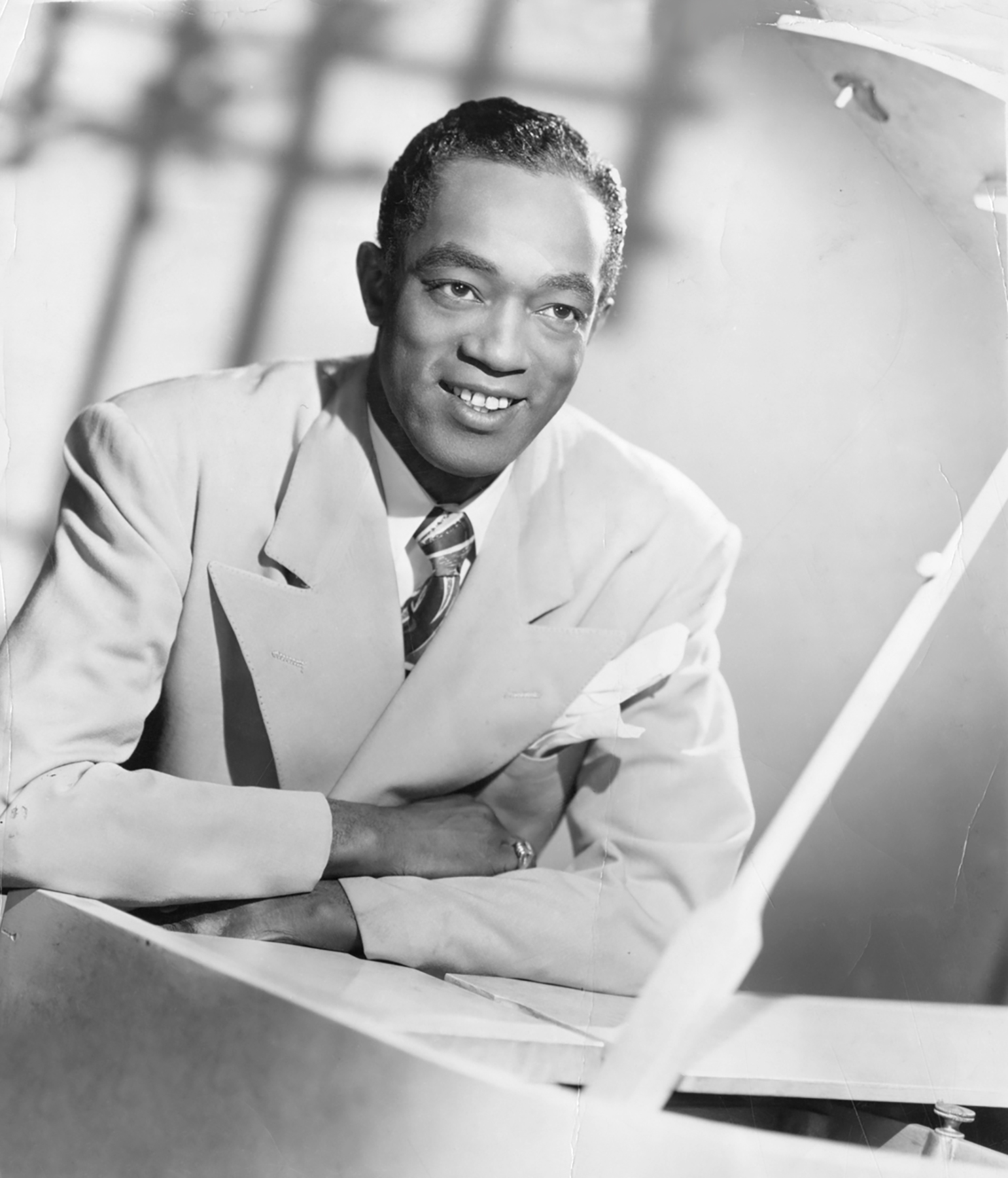Woodrow Wilson “Buddy” Johnson was a popular bandleader and recording artist in the 1940s and 1950s whose compositions and arrangements made him an important figure in the transition from the big band sound to Rhythm & Blues. His many hit records earned his band a permanent spot at New York’s iconic Savoy Ballroom and he was called “King of the Savoy.” Johnson wrote the words and music for “Since I Fell for You,” a sweet blues song with his sister Ella as lead vocalist. The song was released in 1945 and became a standard that was later covered many times. Nearly 20 years later, Lenny Welch’s 1963 version was a mega-hit.
Johnson was born on January 10, 1915, in Darlington, South Carolina into a musical family. His brother, Hiram, became a band manager, and his sister, Ella, became a singer. He began playing piano as a young child and maintained an interest in classical keyboard literature all his life. Following his graduation from Mayo High School in Darlington County in 1933, he went to New York City, where he found work with several bands. Eventually, he toured Europe with the famed Cotton Club Revue in the late 1930s. In 1939, not long after his return to New York, he formed the Buddy Johnson Orchestra and signed a deal with Decca Records that would last through the early 1950s. Later Johnson would sign with several other labels, including Mercury (1953-1958) and Roulette (1959).
The Buddy Johnson Orchestra was popular both in New York and on tour. Johnson’s arrangements combined jazz with a “big” sound reflecting the unusual growth of his orchestra to eventually include 17 musicians. Johnson’s music has been variously described as “New York Blues” and “Jump Blues.” His 1940s hits included “Let’s Beat Out Some Love” (1943), “Baby Don’t You Cry” (1943), “When My Man Comes Home” (1944), and “They All Say I’m the Biggest Fool” (1946).
Johnson’s popularity waned as musical tastes turned to rock, but he continued recording on Mercury through the early 1960s. He died on February 9, 1977, from a brain tumor and sickle cell anemia at the age of 62.

